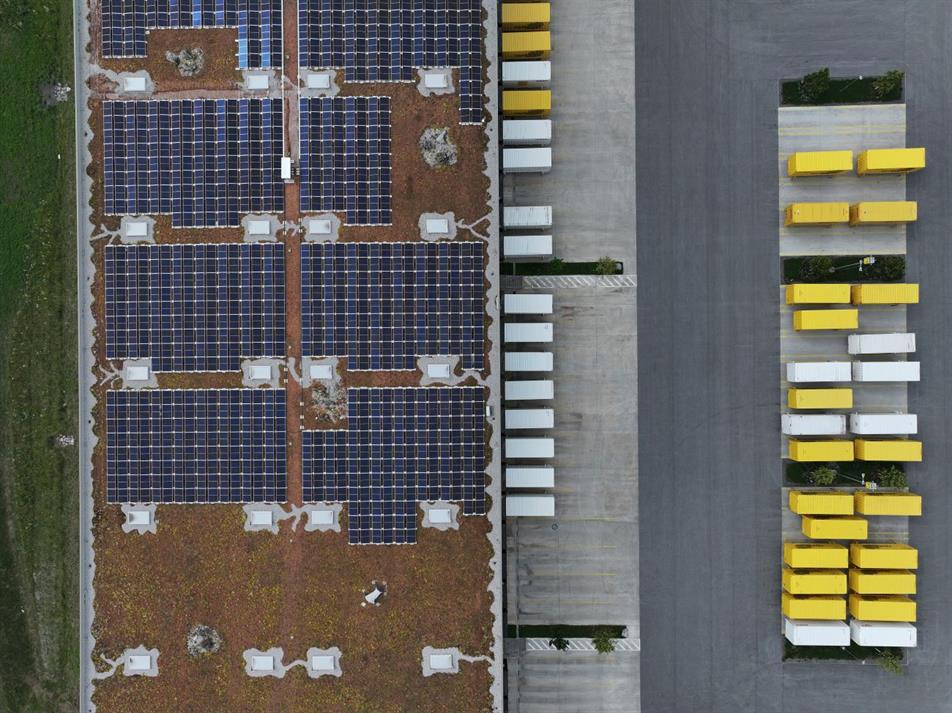Robert Hodgson
29 Aug 2023
A revision of the Energy Performance of Buildings Directive (EPBD) must drive insulation and the replacement of fossil-fuel with renewable energy for heating and cooling, dozens of civil society groups have urged ahead of key negotiations this week.

MEPs and EU Council delegates are due to hold back-room ‘trilogue’ talks on Thursday, with national governments – notably Italy – looking to ease proposed binding deadlines and targets for improvements in energy efficiency of buildings, which account for 40% of energy use in the EU.
In a joint statement published today, Climate Action Network Europe, the Eurocities network, the think tank E3G and over 60 other organisations stressed the importance of a “holistic deep renovation wave” to both reduce fossil fuel use and alleviate pressure on poorer households.
Without making any specific recommendations for targets such as the deadline for requiring all newbuilds to be zero-emissions, the groups demand a “strong and clear regulatory framework” coupled with “adequate and sufficient funding” and social safeguards. The EU Council is pushing for a 2030 deadline, while the European Parliament wants no later than 2028, and as early as 2026 for publicly owned buildings
The joint statement came a day after the European Partnership for Energy and the Environment (EPEE), which represents the refrigeration, air-conditioning and heat pump industry in Europe, issued a joint statement with the European Environmental Bureau dismissing “misplaced and misinformed doubts” about the impact of the revised EPBD as envisaged in the European Parliament’s negotiating position.
The requirement for the least efficient buildings (in categories G and F) to be upgraded to E – by 2030 for public buildings and 2033 for homes – would capture only 25-30% of EU building stock, the trade association argues.
“Furthermore, the new directive will re-score the energy classes for each country relative to the state and distribution of the national building stock: G class would correspond to the 15% worst performing buildings at national level; and class A shall correspond to ‘zero-emissions-buildings’ level,” the statement runs.
EPEE and EEB also call for new fossil-fuel fired boilers to be taken off the market within a decade, noting that Italy is the EU’s second biggest importer of natural gas, and the biggest, Germany, where chancellor Olaf Scholz was forced to backtrack on a unilateral ban amid a public outcry.
The parliamentary rapporteur for the file, Irish MEP Ciarán Cuffe, agreed with the NGO joint statement on the importance of improving the energy efficiency of homes and alleviating energy poverty.
“That is why the EPBD should prioritise the renovation of buildings that waste the most energy, and include robust social safeguards and financing measures to protect vulnerable groups,” Cuffe told ENDS Europe. “If we fail to take appropriate action with the EPBD, the ‘renovation wave’ is simply paying lip service to the challenge before us.”
ENDS Europe understands that among the topics up for discussion on Thursday is Article 9(a) of the proposed directive, dealing with solar energy in buildings. The Commission has proposed that all buildings be “designed to optimise their solar energy generation potential” and the Parliament is pushing for rapid implementation, according to a negotiating document published after the June trilogue.
The EU executive also proposed that governments must ensure the deployment of solar energy installations on all commercial and public buildings of over 250 square metres by 2026, and all existing buildings a year later. Parliament wants both legal requirements to kick in within two years of adoption, while the Council is looking to ease the provisions, for example by applying the provision only to buildings of over 400m2 that are otherwise undergoing major renovations.
Follow-up: NGO joint statement; EPEE/EEB joint statement; 28 June ‘four-column document’Tags:
